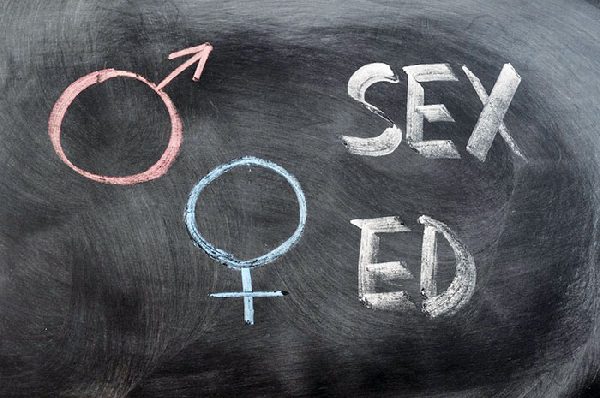
DEARBORN — Many students in Dearborn’s public schools opt out of taking sexual education lessons and some teachers say they wish they were allowed to teach more comprehensive sex ed courses.
Ibrahim Mashhour, director of student services and district athletics at Dearborn Public Schools, said while students statewide are required to learn about HIV and other STD’s, school districts can choose whether or not to teach sexual education.
The district has an abstinence-focused sex ed program.
Mashhour said about 20 percent of students from all grades across the school district are opted out of sex ed courses by their parents. Even more students do not participate in some parts of the two-week course.
He added that in Salina Intermediate School, a high number of students are exempted by their parents from taking such courses.
Laurie Bechhofer, an HIV/STD education consultant for the Michigan Department of Education, said school districts in the state have the option to adopt, adapt or amend sections of the health curriculum, depending on what they find suitable in their communities.
Bechhofer added that state law requires parents and guardians to be notified in advance of sex education instruction. Parents have the right to opt their children out of that lesson, review the material or observe the classroom instruction.
While no official survey is conducted, Bechhofer said she has not heard of other districts having high opt out rates like
Dearborn.
She said in the rest of schools throughout Michigan, the number of those who opt out are “quite low.”
An assistant principal in the district, who wished not to reveal her name, said many parents ask to view videos shown to students during sex education lessons.
“If they don’t want their kids to watch it to hear or be part of it, yes they have every right to opt the child out,” she said.
In an email to Mashhour, a middle school teacher who remained anonymous said seven of her seventh grade students opted out of taking sex education lessons last year.
“I certainly think the unit is important; however I do firmly believe that more about reproduction as well as personal hygiene could be incorporated/covered,” the teacher wrote.
“I feel we are leaving out a good deal of information that the old program used to cover (things like sexual intercourse, the menstrual cycle, identification of body parts, explaining puberty, etc.),” wrote another anonymous high school instructor in an email. “I appreciate the new program in regards to the information it provides about STD’s (especially through the use of the slides) and how it visually appeals to the student; I just wish it was more comprehensive. I feel the class is very important and we should continue to teach it.”
The instructor added that 24 of 123 students in the class opted out of sex education lessons.
A third high school instructor wrote in an email to Mashhour that “there should be more sex ed info added.”
The teacher added that a universal and updated health unit is desired among instructors.
A health education teacher at Geer Park Elementary School, who also wished to remain anonymous, said she was on the committee that decided what parts of the curriculum should be taught in the schools.
She said some of the teachers she spoke to say that sex education is important and that many of the students are interested and engaged in learning about it.
She said the instructors, however, are restricted from addressing certain issues, like abortion, homosexuality and protected sex.
Mashhour said the abstinence-based curriculum in Dearborn removes the section concerning protected sex and condoms.
“We took that completely out; we don’t even deal with it,” Mashhour said.
He added that teachers are required to refer the students to their parents for questions about using and buying condoms.
“Sometimes we get the parents that are very antsy that we’re teaching it, so they always wanna have those conversations,” Mashhour said.
Wadad Budop, a physical education instructor who teaches ninth grade girls at Fordson High School, said there was a controversy among four students who took issue with being taught sex education.
“We were actually told to kind of put some things on the back burner, so we could confirm from the district what we can and cannot say,” Budop said.
She said the way the lessons were approached and the language used in the class offended the students and their parents.
In such situations, Budop said she aims to effectively communicate with the parents that she is not trying to encourage sexual activity, but educate students on the consequences of their actions.
She added that she wishes talking about sexual health was more accepted.
“I think it’s very important that we add sexual education into the curriculum,” she said.
As information is easily accessible online, Budop said students having the answers at their fingertips, but not clearly understanding them, is a problem.
Bechhofer of the Michigan Department of Education, said the department’s policy is that schools implement models that reflect the most effective, evidence based practices.
The Board of Education policy states “well-planned and implemented comprehensive school health education has been shown to positively influence students’ health-related knowledge, skills and behaviors and contributes to their academic achievement. Schools therefore have a duty, in concert with families and communities, to implement effective sexuality education programs that will help students make responsible decisions during their school years and into their adult lives.” γ






Leave a Reply